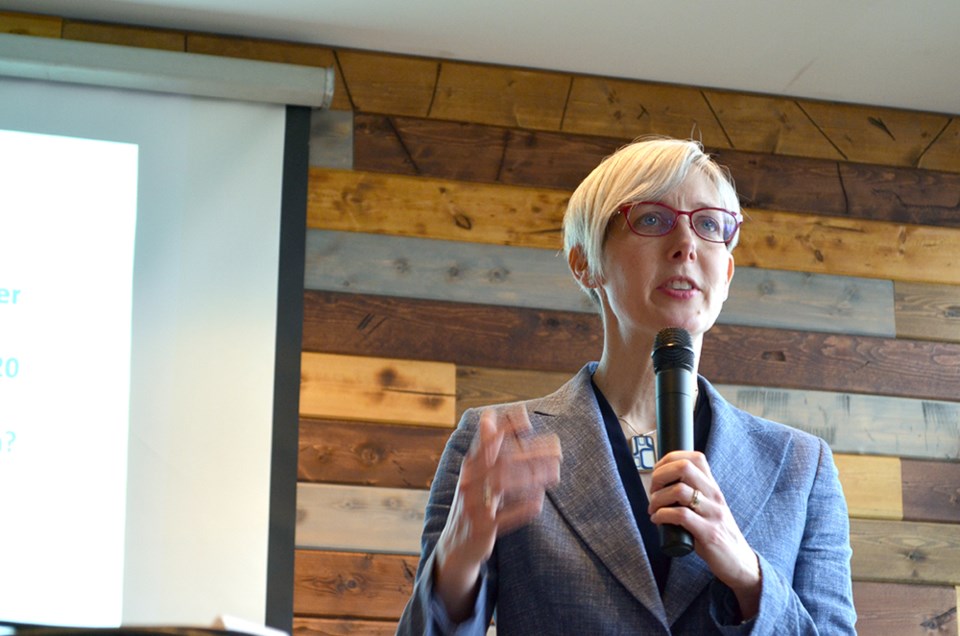During the annual mayor's lunch, Karen Elliott acknowledged the upcoming zoning bylaw rewrite may not be the perfect crowd-pleaser.
"We are going to make changes to that, some of them not everyone's going to love, and we're going to be OK with that because, again, we're taking the long-term view," said Elliott of the proposed zoning changes, which may substantially alter how lands are governed in town.
"We need to make room for employment today. We can't just keep letting housing be built without trying to match those people to local jobs or we turn into a bedroom community, where we lose the benefit of our brand, of what we all stand for, and why we all moved here. So that building bylaw is trying to protect what we love, and it's impossible to make everyone happy, but we are going to do lots of engagement."
The zoning changes will be presented and discussed in council later this year.
It was one of several topics she raised with the audience of dozens at Howe Sound Brewing on Feb. 6.
During her presentation to the �鶹�����Chamber of Commerce, Elliott went over well-worn themes in the council's strategic plan, which was released at last year's mayor's lunch.
This included council's efforts to grow the local economy, improve neighbourhood connectivity, create affordable housing and protect the planet.
The lunch has served as an informal state of the union speech for �鶹�����for years, with this year's event marking the second time Elliott has addressed the town's business community as mayor.
Elliott also put special emphasis on council's environmental initiatives, spending a significant portion of time on that topic. She recalled the District's declaration of a climate emergency last year.
"This was our biggest commitment," she said "It's so important. It drives all decision-making and reporting out of the District."
She noted climate change is a significant problem and that the District's finding that the town emitted 95,400 tonnes of carbon dioxide equivalent in 2017 could actually be a conservative figure.
The District still hasn't figured out how to account for at least some types of wood waste, she said.
"That is just a methane bomb that we don't know how to calculate yet, but it's there," she said.
However, she said that the actual numbers behind climate change aren't so important as acting to stop rising global temperatures.
"It's not about getting to the best number," Elliott said. "It's about starting to take action."
After her speech, the audience had a chance to ask Elliott about what was top of mind for them.
Elliott responded to a question about the shortage of assisted living units for seniors, saying that the District was bringing up the matter with Vancouver Coastal Health.
She acknowledged there is a need for more spaces, but also said they couldn't be produced overnight.
To a query regarding parking, Elliott noted that council will be reviewing a proposal for a downtown parkade this spring.
Employee housing was also a point of concern, and one audience member asked if short-term rentals could be part of the solution for finding workers' accommodations.
Elliott said that council has been encouraging the development of purpose-built rental and affordable housing, which could help workers.
She also said council delayed the short-term rental bylaw so it could see the results of the tourism impact study first.
This would allow elected officials to make a more informed decision, she said.
Trying to find the balance between short-term and long-term rentals won't be easy, she added.
The local childcare crisis was also raised.
Elliott noted the District is working on the matter, and that the municipality received funds for an additional 36 spaces in Valleycliffe.
But she noted that childcare is the responsibility of senior levels of government, not the municipality.




